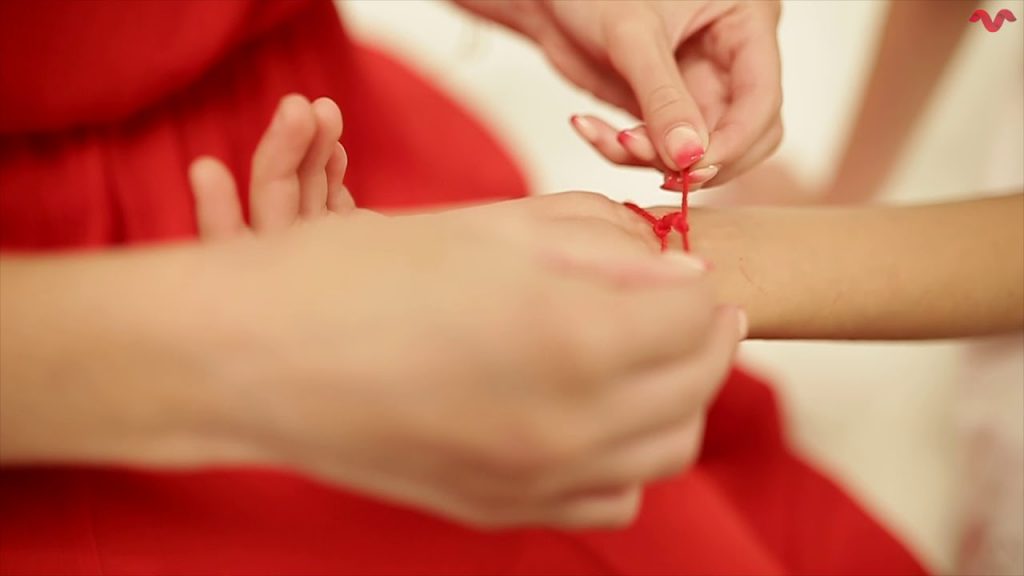
(4-5 Minute Read)
Genesis 37:1 – 40:23
Vayeshev first notes that Jacob settled in the land of Canaan where his father sojourned. At the age of seventeen, Joseph tended the flocks with his brothers, but he brought bad reports about them to their father. Jacob loved Joseph more than all his brothers, and made him a coat of many colors. Joseph’s brothers hated him and could not even speak a friendly word to him.
Joseph had two dreams and told his brothers. In the first dream, they were all binding sheaves of grain; Joseph’s stood upright while his brothers’ sheaves bowed low to his. In the second dream, the sun, moon, and eleven stars bowed down to him. His father, Jacob, challenged Joseph and the brothers were furious, but Jacob kept the matter in mind.
Later, Jacob sent Joseph to check in with his brothers who were pasturing flocks near Shechem. Joseph arrived, but could not find them. A man informed him that they had journeyed onward to Dothan.
Seeing Joseph from afar, the other sons of Jacob conspired to murder him. Reuben encouraged them to merely throw him in a pit rather than kill him, intending to secretly rescue him later.
When Joseph arrived, they tore away his colorful coat and cast him into a pit without any water in it. The brothers sat down for a meal and saw a caravan of Ishmaelites. Judah then suggested that they sell Joseph into slavery instead of killing him. They did so, and the Midianite and Ishmaelite traders brought Joseph to Egypt and sold him to Potiphar, a courtier of Pharaoh.

Reuben returned to the pit and, to his horror, he found it empty. The brothers slaughtered a goat kid and drenched Joseph’s torn coat in the blood and then presented it to their father who erroneously believed that Joseph had been killed by a wild animal.
About that time Judah separated himself from his brothers. He married a Canaanite woman and had three sons named Er, Onan, and Shelah.
Judah got a wife for Er named Tamar. Er was evil in the sight of the Almighty, and He took Er’s life. Judah then instructed Onan to marry Tamar and provide children for his brother. He married Tamar, but refused to impregnate her. What Onan did was also wrong in the eyes of the Most High, and He took Onan’s life as well.
Judah instructed Tamar to remain as a widow until Shelah grew older, secretly intending to refuse the marriage later for fear that Shelah might also die like his brothers.
Much later, Judah’s wife died. Seeing that Shelah was not given to her as a husband, Tamar discarded her widow’s garb and disguised herself, meeting with Judah as he sheared his sheep. Not recognizing her and believing her to be a prostitute, Judah was intimate with her. She required a “deposit” of his seal and cord as well as his staff until payment of a goat kid could be made. He agreed. Tamar became pregnant and again clothed herself with her widow’s clothing. Judah later had the goat kid sent to the alleged “prostitute,” but she could not be found.
About three months later, Judah was informed that Tamar had become pregnant by prostitution. Judah declared, “Let her be brought out and burned.” Tamar stated, “I am pregnant by the man to whom these belong.” She then displayed Judah’s seal, cord, and staff. Judah acknowledged that she was correct, and that he had wrongly withheld his third son from her. He was not intimate with her again.
Tamar gave birth to struggling twins named Perez and Zerah.
Joseph was a slave to Potiphar; the Almighty was with Joseph, and he was successful. Potiphar put him in charge of his entire household, because the Most High blessed Joseph and his undertakings. Joseph was handsome, and his master’s wife repeatedly prodded him to be intimate with her. Over and over Joseph ardently refused to commit such an egregious transgression.
One day Potiphar’s wife caught Joseph by his clothing and demanded that he be intimate with her. He again resisted, fleeing and leaving his outer garment in her hand. Potiphar screamed aloud and falsely accused Joseph of assaulting her. Potiphar was furious and had Joseph cast into prison. But even there, the Eternal One was with Joseph. The warden was kind to Joseph and put him in charge of all the prisoners; the warden didn’t even bother to supervise Joseph, because the Most High made Joseph successful.

Later, Pharaoh was enraged with both his chief cupbearer and chief baker and had them placed in the same prison where Joseph was. After being imprisoned for some time, the cupbearer and baker both dreamed in the same night their own dream.
The next morning, Joseph asked why their faces appeared distraught. They complained that no one could interpret their dreams. Joseph said, “Surely the Most High can interpret! Tell me your dreams.”
The cupbearer related his dream. Three vine branches budded with grapes, and he pressed the grapes into Pharaoh’s cup. Joseph interpreted the dream as meaning that Pharaoh would restore the cupbearer to his former position in three days. Joseph further asked that the cupbearer remember Joseph and mention him to Pharaoh, since he was enslaved and imprisoned unjustly.
Seeing the favorable interpretation for the cupbearer, the baker also disclosed his dream. Three baskets rested on the baker’s head; birds were eating baked goods out of the top basket. Joseph declared that the baker would be executed in three days and the birds would eat his flesh.
Three days later, it happened to the cupbearer and baker just as Joseph had interpreted. But the chief cupbearer forgot about Joseph.
As we begin the famous story of Joseph, we immediately see that Jacob’s family was plagued by two highly destructive elements: lishon hara, or slanderous speech; and sinat chinam, or free-flowing hatred.
Jacob had made a crucial error in that he had shown immense favoritism towards his wives and sons throughout his life. In addition to overt depictions, such as Jacob giving Joseph a colorful coat because he “loved Joseph more than all of his other sons,” (Bereishit / Genesis 37:3) the Torah alludes to this fact in other ways. In the previous portion of Vayishlach, Jacob faced an incoming potential threat from his brother, Esau, and his four hundred warriors. In that situation, Jacob literally divided his family into groups according to whose lives he prioritized (Bereishit / Genesis 33:1-2) Thus, Jacob’s sons and wives were already painfully aware whom he had chosen to die first if necessary. Besides that, it was very clear that Jacob loved Rachel more than Leah and his other wives (Bereishit / Genesis 29:31).
In this context the family dynamic was already extremely volatile. To make matters worse, Jacob openly and publicly displayed his affection for Joseph. Joseph reciprocated by slandering his brothers to his father, securing greater affection and ensuring their criticism.
Additionally, Jacob had established a destructive precedent within his family. Jacob allegedly thrived by deceptively supplanting his own brother and stealing his blessing. He further found it necessary to deal very shrewdly with Laban, his thieving father-in-law. Accordingly, we see Joseph subverting his own brothers at an early age by lying about them to their father. Jacob’s other sons, in turn, likewise apparently felt that extreme (even murderous) measures to secure their own positions and blessings were justified.
From this perspective, we see that Jacob’s methodology had grave consequences both for himself and his entire family. In reality, the Most High blesses whom He will bless, and curses whom He will curse. Human intervention ultimately has little effect on these Divine blessings. In fact, such meddling can even backfire and result in a disqualification from blessings; or, at least, it can create negative consequences in spite of the blessings. If Jacob and his family had realized these principles earlier in their life narrative, they could have possibly spared themselves much heartache, drama, and tragedy.
In the context of striving to improperly maximize their own blessings, Joseph engaged in slanderous lishon hara, and his brothers reciprocated with murderous sinat chinam, free-flowing hatred. The result was catastrophic destruction for the entire family for decades, and only the miraculous intervention of the Most High combined with sincere teshuvah, repentance, on the part of both Joseph and his brothers could bring stability and restoration back to the family.
In the story of Joseph, we see that there are Divine consequences against both Joseph and his brothers for their misdeeds. In later Torah portions, we read of the negative repercussions for Jacob’s other sons. In this Torah portion, Joseph’s consequences are recorded. For instance, it was the slanderous lishon hara of Potiphar’s wife who falsely accused him of assault that resulted in an unjust prison sentence for Joseph. Joseph who had repeatedly slandered his brothers was now the victim of slander. Even worse, Potiphar’s wife had used his outer garment as “evidence” of her vicious false accusation. Previously, Joseph had gloated of his pending dominance over his brothers, especially by flaunting his coat of many colors.
One aspect of Vayeshev that is interesting to note is that, although the context might imply that Joseph is being Divinely punished for his misdeeds (at least partially), the Torah reiterates repeatedly that “the Almighty was with Joseph.” We can learn an important principle from these passages as it relates both to our personal lives as well as the history of the Jewish people as a whole. Quite often we are disciplined and suffer negative consequences in our lives; indeed, much of the history of the Jewish people can be defined as such. However, even in those moments the Eternal One is with us, guiding us and enabling us to become better versions of ourselves through His chastening.
In the middle of Vayeshev, the narrative seems to “switch gears” and discusses the family of Judah. Judah married a Canaanite woman, and ultimately two of his three sons died because their deeds were evil in the sight of the Almighty. In typical fashion for the family of Jacob, Tamar, Judah’s daughter-in-law, secured the promulgation of Divine blessings for the line of Judah for her own twin sons through deceptive supplanting.

Interestingly enough, not much is known of Tamar’s background. The Torah itself says practically nothing, and even Midrashic sources are skeletal. Some Midrashic texts indicate that Tamar was a convert and an orphan, but that is debatable. However, following this Midrash, an interesting theory can be developed.
Contrary to what is commonly thought, some have suggested that Jacob became the primary recipient of Divine blessings not because of his supplanting of Esau, but because of his alignment with the Almighty’s will to create the Jewish people by marrying righteous women dedicated to the Most High rather than unrighteous Canaanite idolaters. Esau, however, married Caananite and Ishmaelite women, and none of his progeny were ever qualified to receive the blessings of the Eternal One reserved for the Jewish people. Similarly, Judah married a Canaanite woman, and two of his three sons died. However, the sons born to Tamar who seduced Judah became the true progenitors of the tribal line. Could it be that Judah had nearly disqualified his descendants from becoming part of the Jewish people because of his ungodly Canaanite wife? As aforementioned, according to some accounts Tamar was an orphan and a convert. Some have suggested that she was a member or descendant of the survivors of Shechem who had been absorbed into Jacob’s family after he admonished them to reject all forms of idolatry (Bereishit / Genesis 35:2). In that sense, Tamar would have been a convert and an orphan, especially if her parents had been killed during Simeon and Levi’s attack on the city. If the principle is that the patriarchs, including Judah, required a righteous woman to extend their progeny and receive Divine blessings, then we can develop an interesting perspective as to why the Most High prematurely ended the lives of Judah’s unrighteous sons, and instead granted blessing to the untoward actions of Tamar. Just as Jacob was blessed since he married righteous women despite his theft and supplanting of his brother, Judah could only propagate the blessings of his bloodline through a righteous woman like Tamar (presumably a convert possibly from Jacob’s household) rather than his Canaanite wife and ensuing ungodly sons.
May the Holy One, Blessed be He, enable us to always avoid such heinous sins as lishon hara and sinat chinam, recognizing how incredibly destructive their own for ourselves, our families, and our communities. And may we ever strive to build and maintain our families on equal love, recognizing the importance of our dedication to the Almighty and His Torah above all else.


